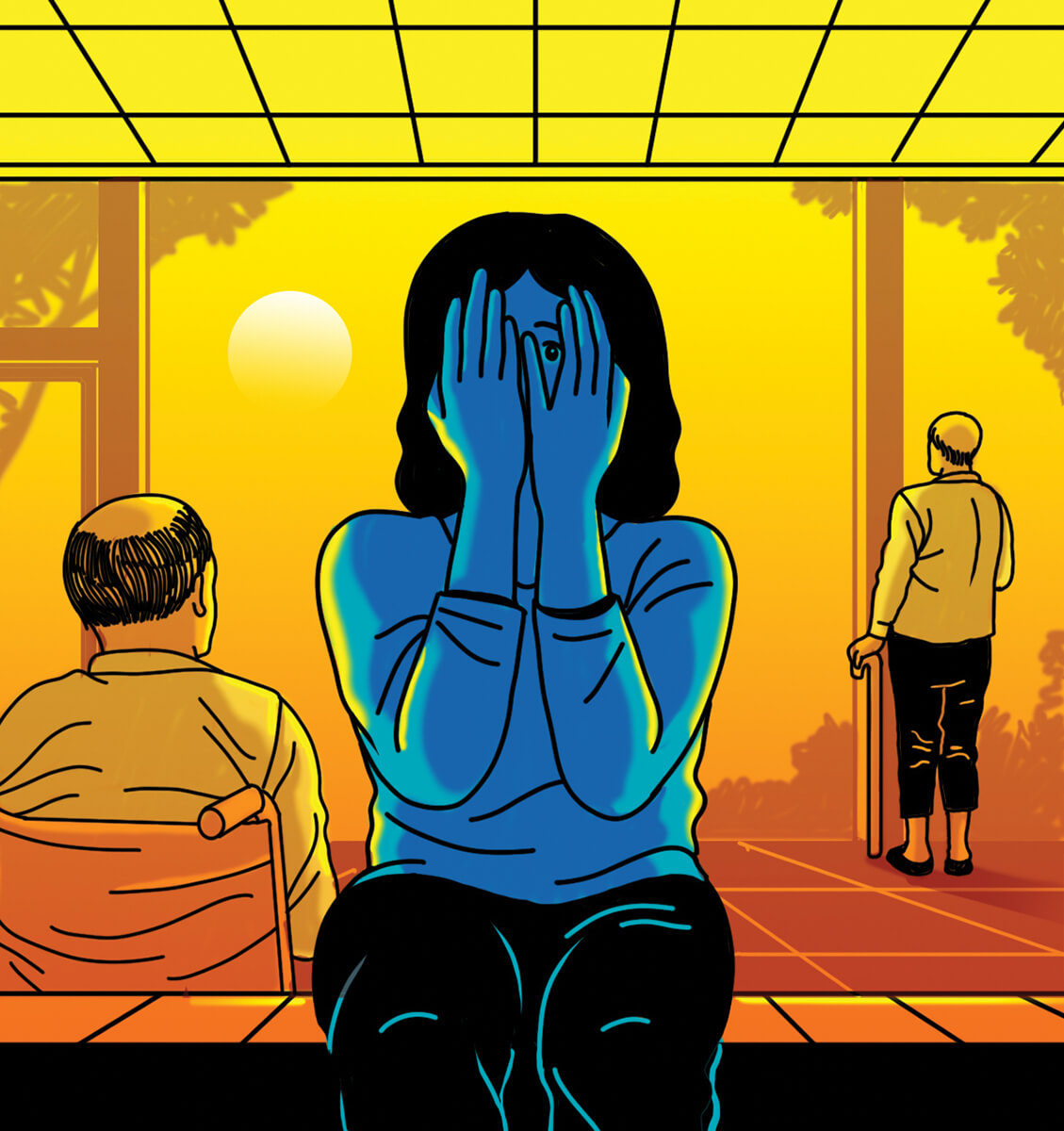If agoraphobia is the fear of public places and xenophobia of strange people, then what is the fear of fogies? Elena mashes her own term: geriphobia — fear of strange old people in public places.
Although the institution is modern and clean, nothing can camouflage the medley of disinfectant, urine and the kitchen’s next meal. When she rolls Poppy outside and into sunshine at the front of his building, they sit in silence.
He finally speaks: “What do you call these places?” “It’s a personal care centre.”
“Who comes to these places?”
“People who need extra help with bathing and eating.”
That seems to satisfy him, without spelling out that he is one of those people.
A passing aide notices that Poppy’s slipper has fallen off. When the woman crouches to brush away crumbs from the bottom of his bare foot, Elena’s throat tightens. What if I can’t do this? What if I can’t be a good daughter?
Moving inside, she sits next to him in the foyer with a handful of silent residents who wait: for meals, for medications, for visitors, both real and imagined. She watches the vacant faces of those who slow-shuffle past. Poppy smiles, seems to enjoy the aimless ebb and flow around him.
She tells him that a bird flew into her bed-room window this morning, and he nods.
“I’ll hang something in that window later. I’ve got the tools.”
“Thanks, Poppy,” she says. “You’re always so handy.”
Elena longs to shove through the front door that requires a security code. Otherwise, resi-dents will wander. Instead, she boards the shut-tle bus with five other volunteers who roll half a dozen men in wheelchairs through Home Depot, to let them cradle screwdrivers and gardening tools in their blue-veined hands. At first it seems cruel, to remind them of what they can no longer do, those who built bird houses in hobby shops or trimmed wisteria in landscaped yards.
She pushes Poppy’s chair down aisles, search-ing for hardware to kickstart the memory of his former life. Nothing.
